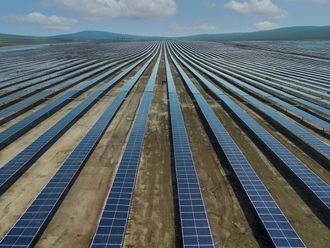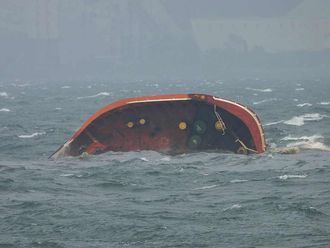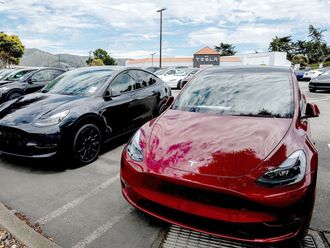Oil markets are well supplied and prices look likely to fall after the winter despite "psychological" worries about depleted oilstorage tanks, said the head of European oil giant TotalFinaElf yesterday.
"There is no physical shortage of oil (but) there is a psychological impact that is linked to the level of inventories," said Thierry Desmarest, Totalfina's Chief Executive and Chairman.
Talking at the Oil and Money conference in London he refused to make any long term prediction about oil prices but said that once the northern hemisphere winter has passed "there should be some decline".
Organisation of the Petroleum Exporting Countries ministers decided on Monday not to adjust crude production quotas that already have been raised four times this year and cited market speculators, high European fuel taxes and low overall refinery throughput as important reasons behind recent high crude prices.
"We can only conclude that Opec has more than fulfilled its role as a reliable oil supplier and that the true reasons for currently high prices lie behind a series of other factors," said Opec President Ali Rodriguez of Venezuela.
Rodriguez took aim in particular at shrinking refining capacity in the United States, the world's biggest importer. But U.S. Energy Secretary Bill Richardson said on Tuesday that world markets needed more crude oil, despite Opec's decision not to increase oil production.
"We still think there's a supply problem," Richardson said in an interview on CNBC news network. "We do think that more oil is needed on the market." Oil prices leapt yesterday as a decline in heating oil stocks in the United States heightened supply concerns as colder weather approached.
The prospect of oil surging to $40 per barrel entered the realm of reality after a tiny dip in U.S. heating oil stocks sent prices past $35 yesterday, but analysts said any spike would be short-lived.
Dangerously low heating oil stocks have filled the market with fear, leading to knee-jerk price reactions to every report of a drawdown in oil stocks or a cold snap in the United States.
U.S. crude prices could easily shoot past the 10-year high of $37.20 hit in September if weekly data from the world's largest energy market showed a significant drop in heating oil stocks, analysts said.
"(A price spike is) very likely because everybody has very low stocks," said Morgan Stanley Dean Witter's regional energy analyst You Jing-feng in Singapore. "That means the demand for inventory will be extremely high when demand increases."
You said the market could test $40 by the end of the year if the cold snap or stock drop scenario comes to pass. In the U.S. northeast, supplies were more than 40 per cent below their level last year of 25.4 million barrels.
Analysts said wafer-thin heating oil stock level was driving the market, leaving the bulls to charge through other bearish data such as a significant build in crude oil and gasoline.
"The crude and gasoline numbers initially looked bearish but there was a draw in distillates - and especially on heating oil - which shows that there is still a scary situation heading into winter," said Tom Bentz of BNP Paribas in New York.
Analysts said refiners, enjoying their best returns in years, would do little to harm the lucrative margins. Refiners have the ability to tweak refining units to produce more heating oil.
"I find it hard to believe that they (oil companies) cannot produce more heating oil. I think there is more they can do," a U.S.-based energy consultant said. Analysts said the stalemate in the U.S. presidential election was also contributing to the bullish market.
"There is no political pressure on the oil companies to produce more heating oil right now," the consultant said. But they said any price surge would likely last only a few weeks because the market was beginning to feel the impact of extra supplies released by Opec.
"A price spike is going to be short-lived. The futures market indicates that prices are going to fall," You said. The futures market's current steep backwardation - where prices of prompt oil are much more expensive than forward cargoes - reflects the general perception of ample supplies early next year, analysts said.
TotalFinaElf CEO says markets well supplied
Oil markets are well supplied and prices look likely to fall after the winter despite "psychological" worries about depleted oilstorage tanks, said the head of European oil giant TotalFinaElf yesterday.












